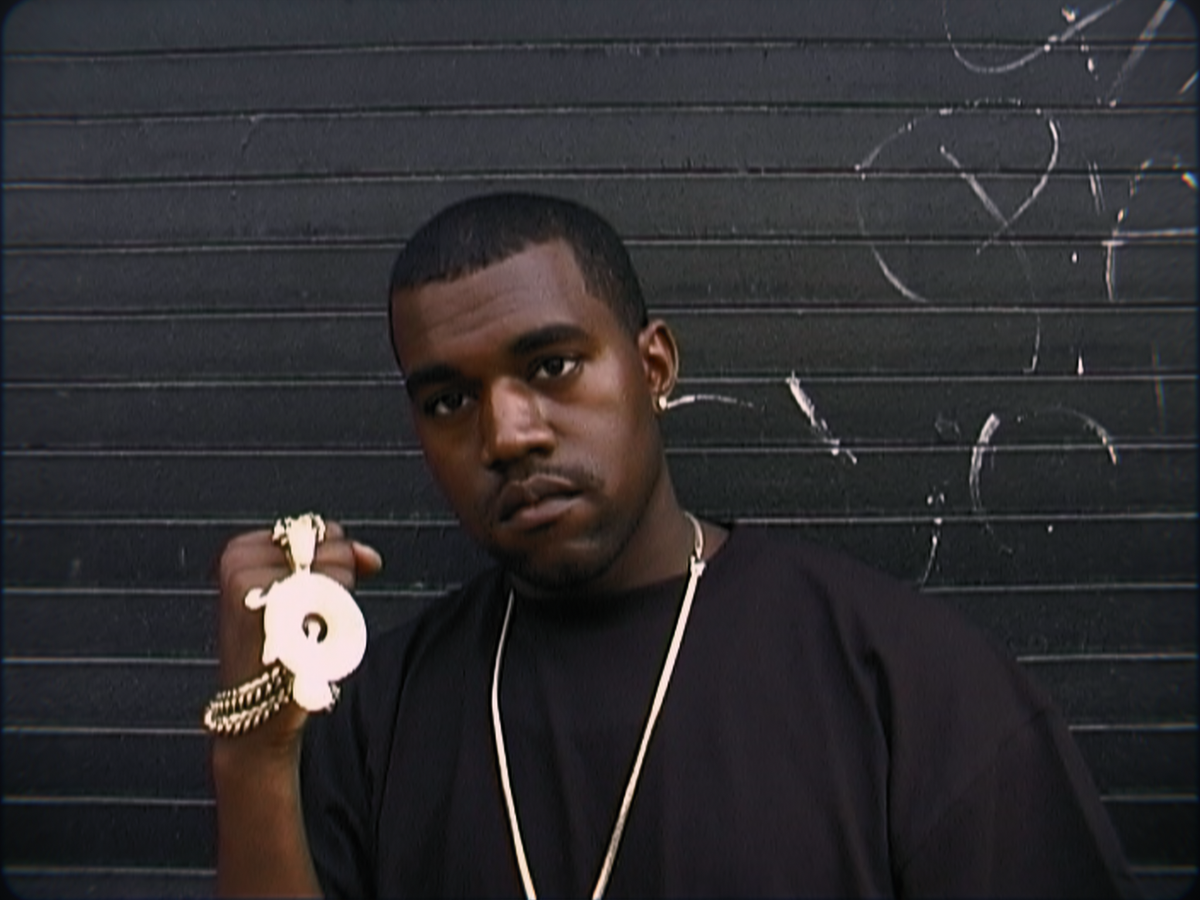In the first two minutes of the epic three-part Netflix documentary Jeen-Yuhs: A Kanye Trilogy, Kanye West’s life flashes before our eyes: dressed as Christ in his crown of thorns on the cover of Rolling Stone, shaking the hand of Donald Trump in the Oval Office, performing on a giant floating platform ringed with lights. From the sacred to the profane, one of the 21st century’s greatest hip-hop artists is seen through his highs and lows; his heady rise to both global superstardom and pop cultural pariah status follows over the next five and a half hours.
Like West’s last couple of albums, Jeen-Yuhs is almost certainly too long and almost definitely could have done with a damn good edit. Fans will no doubt lap up every second of this exhaustive document, but for anyone who thinks he might just be a touch indulgent, well, this won’t make them think otherwise.
A chronological look at West’s ferociously focused quest for success, the series begins in the late Nineties, with an eager young West making beats for other rappers while wishing it was him behind the mic instead. Coodie, a former Chicago stand-up comic turned director, sees a spark of magic in West, instinctively knowing he’s set for big things. Coodie ditches everything to follow West to New York and document his life on camera. This is where the richest of the archive material is pulled from, with West hovering in the background of studios and concerts by the biggest rap names of the era: Jay Z, Mos Def, Talib Kweli. He stands in the shadows, waiting to step into their shoes.
Much has been made of a particular Jeen-Yuhs scene in which West rushes the Roc-A-Fella record label office in New York to play disinterested staff members his unreleased music. Straddling the line between endearing and annoying, it’s the kind of ballsy move which sets the tone for much of West’s career, showcasing a willingness to do whatever it takes to get himself in the limelight with little concern as to how other people might feel about it. “You can come off a little arrogant even though you’re humble,” West’s mother Donda tenderly tells him ahead of the release of his debut album, 2004’s The College Dropout. “Remember to stay on the ground and you can be in the air the whole time.”
When the album is finally released after a series of setbacks – including a near fatal car crash which sees West’s jaw wired shut – it’s awarded with 10 Grammy nominations. Granted the success he’d always chased, a huge smile plastered across his face as he accepts the award for Best Rap Album from actor Kevin Bacon at the ceremony, he’s made it.
Such happiness doesn’t last. The death of West’s mother is pitched as a major turning point in his life. After her passing, West asks for filming to stop. The documentary is put on ice for the next six years. The intervening time is filled with television news reports of “profanity-laced Twitter tirades” and interview clips where West professes to be “a god”. In 2014 Coodie and West meet again, but things are different now. West is no longer a wannabe star in training, but a tabloid regular known for his outbursts as much as his music. “I knew Kanye,” explains Coodie, nervous after not having seen his old friend for so long. “But I had never met Yeezy.”
Since 2016’s stunning The Life of Pablo, his seventh album, West has seemingly been less about the music and more about the spectacle. Coodie tries to get us to another side of West, a man wracked by poor mental health and, Coodie insists, someone “crying out for help”. At times it works, as West gazes at negative news clips about him on his phone. It’s in these moments that Jeen-Yuhs achieves the previously unthinkable: cocky and ultra confident he might be, West is human, too.



More Stories
How to watch Sinead O’Connor’s ‘Nothing Compares’ documentary this weekend
Barbie smashes The Dark Knight’s 15-year-old box office record
Seann William Scott says he was paid only ‘$8,000’ for American Pie